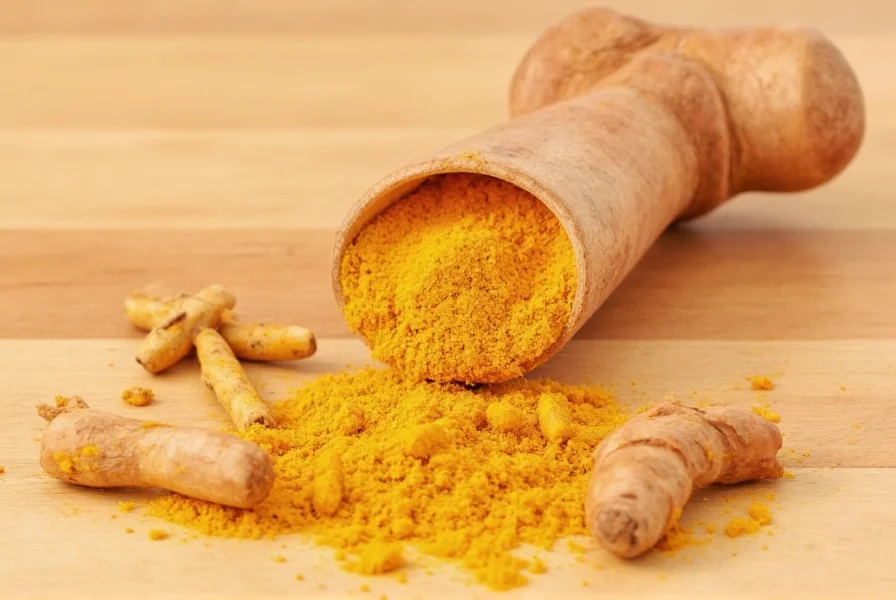Curcumin, the active compound in turmeric, has gained widespread popularity for its anti-inflammatory properties and potential health benefits. While generally considered safe, understanding its effects on digestion is crucial for those incorporating it into their wellness routine. This article examines the relationship between turmeric consumption and digestive health based on current scientific evidence.
The Science Behind Turmeric and Digestion
Turmeric has been used for centuries in traditional medicine systems, particularly in Ayurveda and Traditional Chinese Medicine. Modern research suggests that curcumin can stimulate bile production, which aids digestion but may cause issues for some people when consumed in high amounts.
A comprehensive review published in Food and Chemical Toxicology examined curcumin safety and found that doses up to 8,000 mg per day were well-tolerated in clinical trials, though gastrointestinal symptoms including diarrhea were noted as the most common side effects at higher doses. The threshold for digestive discomfort varies significantly between individuals.

Dosage Matters: Culinary Use vs. Supplements
The distinction between culinary turmeric and supplements is critical when assessing digestive effects:
| Form | Typical Curcumin Content | Digestive Risk Level |
|---|---|---|
| Culinary turmeric (fresh root) | 2-5% curcumin | Very low |
| Culinary turmeric (powder) | 3-6% curcumin | Low |
| Standardized curcumin supplements | 95% curcumin (400-2000mg) | Moderate to high |
| Enhanced absorption formulations | Varies (often 500-1500mg) | Moderate |
When consumed as part of regular cooking—typically 1-3 grams daily—turmeric rarely causes digestive issues. The concern primarily arises with supplement use, where concentrated doses deliver significantly more curcumin than would be obtained through food.
Who's Most at Risk for Turmeric-Related Digestive Issues?
Certain individuals may experience digestive discomfort from turmeric more readily than others:
- People with irritable bowel syndrome (IBS) or inflammatory bowel disease (IBD)
- Those with gallbladder issues, as turmeric stimulates bile production
- Individuals taking blood-thinning medications
- People with a history of digestive sensitivity to spices
Research suggests that approximately 8% of people taking high-dose curcumin supplements report mild gastrointestinal symptoms, with diarrhea being among the most common complaints. These effects are typically dose-dependent and resolve when dosage is reduced.
Preventing and Managing Digestive Side Effects
If you're concerned about potential digestive issues from turmeric, consider these evidence-based strategies:
- Start with low doses—Begin with 500mg of curcumin daily and gradually increase over weeks
- Take with food—Consuming turmeric with a meal significantly reduces digestive upset
- Choose quality formulations—Some enhanced absorption products cause fewer side effects
- Consider black pepper—Piperine in black pepper may allow lower curcumin doses for same effect
- Stay hydrated—Adequate water intake helps maintain normal digestive function

When to Consult a Healthcare Professional
While occasional mild digestive discomfort from turmeric supplements is common, certain symptoms warrant medical attention:
- Diarrhea lasting more than 48 hours after stopping turmeric
- Severe abdominal pain or cramping
- Blood in stool
- Symptoms of dehydration (dizziness, reduced urination)
- Interactions with prescribed medications
Individuals with pre-existing digestive conditions should consult with a healthcare provider before starting turmeric supplements. Those scheduled for surgery should discontinue turmeric supplements at least two weeks beforehand due to potential blood-thinning effects.
Conclusion
Turmeric is generally well-tolerated when used appropriately in cooking. While high-dose supplements can cause digestive issues including diarrhea in some people, these effects are typically manageable through proper dosing and consumption methods. Understanding your individual tolerance and starting with conservative doses can help you enjoy turmeric's benefits while minimizing potential side effects.
Can turmeric cause diarrhea at normal culinary doses?
Turmeric used in normal cooking amounts (typically 1-3 grams daily) rarely causes diarrhea. Digestive issues are primarily associated with high-dose supplements rather than culinary use.
How much turmeric is too much and can cause digestive problems?
Most people tolerate up to 8 grams of curcumin daily without issues, but digestive side effects including diarrhea may occur at doses exceeding 4-8 grams. Individual tolerance varies significantly, with some sensitive individuals experiencing effects at much lower doses.
Does black pepper in turmeric supplements affect digestive tolerance?
Black pepper (piperine) enhances curcumin absorption, which may allow lower doses to be effective. While piperine itself can cause digestive upset in some people, the reduced curcumin dose often results in better overall digestive tolerance.
How can I take turmeric supplements without digestive side effects?
To minimize digestive issues, take turmeric supplements with food, start with low doses (250-500mg), choose quality formulations, and gradually increase as tolerated. Dividing the daily dose into multiple smaller servings throughout the day may also improve tolerance.
Are certain turmeric supplement forms less likely to cause diarrhea?
Yes, some enhanced absorption formulations like curcumin blended with turmeric essential oils or phospholipids may cause fewer digestive issues than standard 95% curcumin extracts, as they require lower doses for similar effectiveness. Whole turmeric root powder supplements also tend to be better tolerated than concentrated extracts.











 浙公网安备
33010002000092号
浙公网安备
33010002000092号 浙B2-20120091-4
浙B2-20120091-4